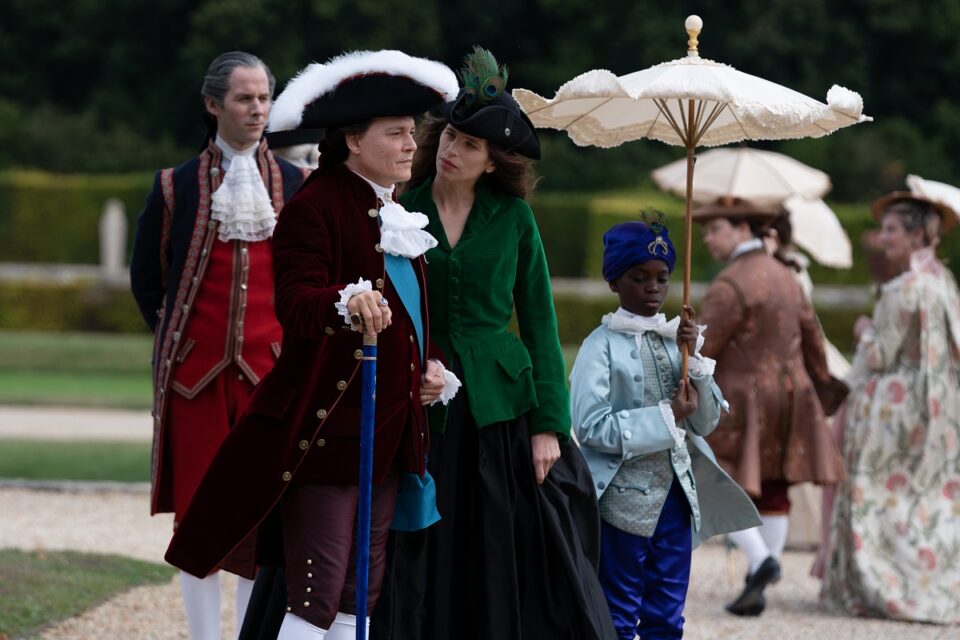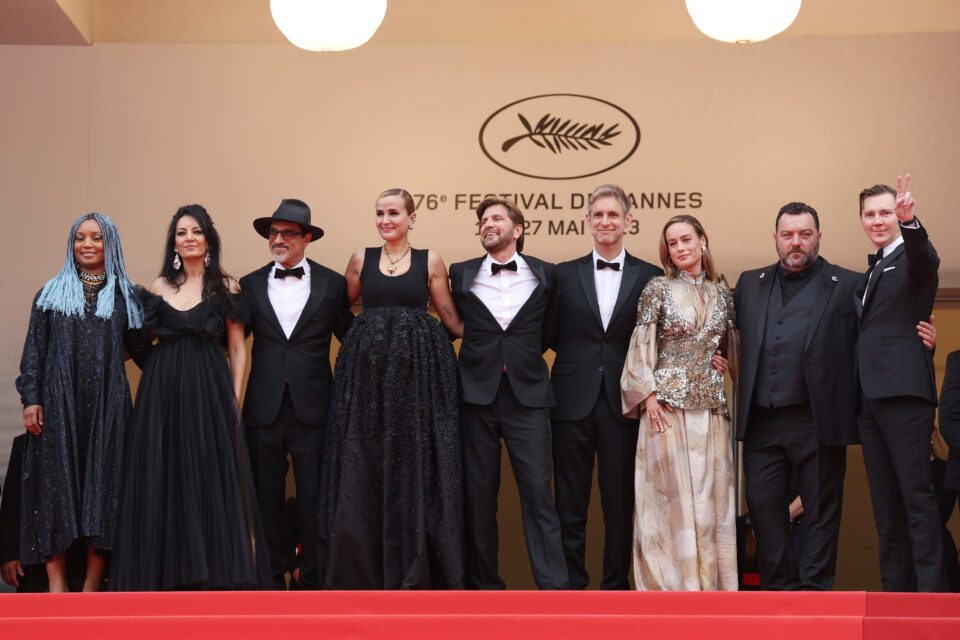#RSatCannes: ‘Jeanne du Barry’ is a Grand, Dull Affair; Jury Consensus is Boring, says Ruben Östlund
The French historical drama starring Johnny Depp and Maiwenn continues the festival’s tradition of opening with a terrible film

Johnny Depp and Maiwenn in a still from 'Jeanne Du Barry' which will premiere at the 76th Cannes Film Festival. Photo: Courtesy of Cannes Film Festival
Most film festivals across the world put their best foot forward on their opening night. All, except the Cannes Film Festival.
Considered the world’s most prestigious, high-brow festival, it’s also one that is steeped in traditions, including that of opening with a terrible film. This year too the opening film, Jeanne du Barry by French director Maïwenn, lived up to expectations. It was thoroughly disappointing.
Based on the true story of King Louis XV and his last mistress, Countess Jeanne du Barry, the film stars Johnny Depp as the king and the director has cast herself as his mistress. And that is the root of all problems.
There is zero chemistry — sexual or romantic — between Maiwenn and Depp, mostly because she can’t act, and partially because she can’t direct. But she fancies herself a lot and is pretty much in every frame in the film doing one of three things — mostly she is giggling, sometimes she is suppressing a giggle, and when she is not giggling, she stares into the camera looking pensive.
The film is billed as Depp’s comeback, and he could have lifted it if the role of the king ‘Louis the Beloved’ had been written with a little more vigor and he has been given a little more screen time. He is on the screen barely for 10-12 minutes and even then, he is cast as a dull man with hair that desperately needs conditioning. Depp’s King Louis is a bechara who speaks very little and feels trapped in elaborate costumes, rituals, pageantry, lighting up only when he sees Jeanne.
That would have worked if the film’s writers and directors had stuck to historical facts. The real Jeanne was a colorful woman with a fondness for extravagance, diamonds and lovers. She apparently had a scandalous menage a trois after the king died. But under the aegis of Maïwenn, Jeanne has been dulled down and turned into a simple woman who seeks acceptance and the simple joy of reading a book in the king’s presence.

The film has an India angle in Zamor, a slave from Bengal, that the king gifts to Jeanne. But even that could not excite me about Jeanne du Barry, a limp historical drama where the costumes, sets, carpets, chandeliers and wigs are way more interesting than the wimpish story it seeks to tell or the two actors at the center of it.
Jeanne du Barry is Johnny Depp’s first film after the sordid trial with his former wife, Amber Heard, ended. He needs it to be a hit to be back in the good graces of Hollywood studios and to find interest in a film he wants to direct.
Depp is in Cannes not just to walk the red carpet for the premiere of Jeanne du Barry, but to also look for buyers at the Cannes film market, which runs parallel to the film festival, for a project he wants to direct: Modi. Starring Al Pacino and Riccardo Scamarcio, it’s a biopic of the tragic Italian artist Amedeo Modigliani, known as “Modi” to his friends. The story involves painting nudes, smoking hashish and a wife who commits suicide.
If Depp was hoping that Jeanne du Barry would give Modi a leg-up, the barely-audible, listless applause when the film’s credits rolled, would have told him that negotiations are going to be tough.
‘Consensus is the most boring thing’: Ruben Östlund
“Consensus is the most boring thing,” Ruben Östlund, Swedish director and president of the Cannes jury, said at the most exciting event on Day 1 of the Cannes Film Festival — the jury’s press conference.
Usually, jury press conferences are like formal introductions to the nine men and women who will decide which of the 21 films in the festival’s competition section will get the Palme d’Or. It is, thus, a staid affair where the jurors arrive, pose for photos, tackle questions with text that’s been prepared in advance and deflect uncomfortable questions. But this year’s jury, led by Östlund, a two-time winner of Palme d’Or, was animated and political. The jurors talked about the ongoing Writers Guild of America (WGA) strike over contract negotiations with major networks and studios, workers’ protest in France that has been threatening to spill onto the red carpet, Oscar versus Palme d’Or, and how to be a jury member at Cannes.

“If a jury is looking for the common denominator, there’s a risk that the best film is going to fall through the cracks. So I’m going to encourage people to fight for the films they really believe in. We don’t have to be smart, intellectual… They should trust in their instincts and not be scared of saying something stupid,” Östlund said. Responding to a question by Rolling Stone on what she will do in case of a difference of opinion, juror Rungano Nyoni, who directed I Am Not A Witch, said, “I have no strategy. I’m not an intellectual. I’ll try to convince the others about a film that I like. But if they’re not interested, that’s OK. I’ll just go and bitch about it at home.”
Giving a peek into how he plans to run the jury, Östlund made it clear that there will be discussions after jurors watch three films and added, “One thing that will be a first in the history of the Cannes Film Festival is that this year PRs and publicists will have no rumors to tell about which film is a likely contender (for Palme d’Or).”
Juror Paul Dano, Hollywood actor most recently seen in Steven Spielberg’s The Fabelmans, when asked about his stand on WGA strike, expressed solidarity and said, “My wife is currently picketing with our six-month-old strapped to her chest. I will go be with them on the picket line when I get back.”
Östlund, who won the Palme d’Or last year for Triangle of Sadness, a satire on the uber rich, too expressed solidarity for the ongoing union protests in France over pensions.
“It’s great that people have a strong collegial feeling and you can go out and have a strike. That’s how you can change the conditions of your profession. So I’m like ‘Yeah, go!’ I am definitely pro,” he said.
The other jury members this year include French director Julia Ducournau, the second woman to ever win the Palme d’Or in 2021 for Titane, Argentina’s Damián Szifron who directed Wild Tales, Moroccan filmmaker Maryam Touzani whose film, The Blue Caftan, showed in the festival’s sidebar section, Un Certain Regard, last year; Atiq Rahimi, a French-Afghan writer and director known for Blood and Ashes, Hollywood actor Brie Larson known for Captain Marvel, and French actor Denis Ménochet.
The Cannes Film Festival runs from May 16th to 27th.



